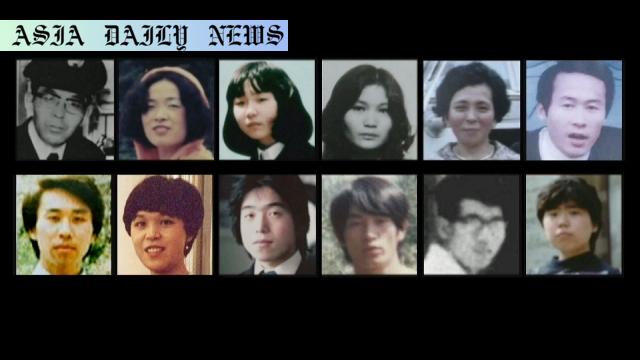Abduction – Families renew calls for action as they lobby for cooperation between Japan and Trump’s administration to resolve the issue.
- Families of abductees are renewing their efforts to lobby for action.
- Trump’s interactions in 2018 with North Korea raised hope for resolution.
- Families stress urgency as aging relatives may not see resolution.
- 2025 identified as the decisive year for progress in abduction cases.

Japan’s Ongoing Struggle with North Korean Abductions
The emotional battle for justice continues for Japanese families grappling with the fate of their loved ones kidnapped by North Korea. A rally held in Tokyo brought these families together in their mission to secure decisive action. Among them is Yokota Takuya, whose sister, Megumi, was abducted in 1977 at the tender age of 13. His renewed call to action highlights an issue that remains unresolved for decades, one that weighs heavily on the hearts of victims’ families.
Trump’s Role in Raising the Abduction Issue
For many families, former US President Donald Trump has served as a beacon of hope. During a historic summit with North Korean leader Kim Jong Un in 2018, Trump took the unprecedented step of addressing North Korea’s abduction of Japanese citizens. This small but meaningful move sparked optimism among families who are desperate to see a resolution to what remains a glaring human rights concern. As they look ahead, families are pinning their hopes on the possibility that Trump’s administration might again push the issue forward if he resumes a leadership position.
Urgency for Action as Time Runs Out
Time is an undeniable factor pressing the urgency of this matter. Aging relatives, such as Takuya’s 88-year-old mother, Sakie, and the 96-year-old father of another abductee, Keiko Arimoto, may not see the day their loved ones return. Yokota Takuya has voiced his concern over the ticking clock, making 2025 a key year for action. The families’ advocacy is critical in ensuring the Japanese government and international allies, like the United States, remain focused on resolving this decades-long crisis.
Families Seek Direct Dialogue and Collaboration
To amplify their message, families are considering a trip to the United States to appeal directly to leaders in Washington. Their goal is to emphasize that the abduction issue is not only Japan’s problem but a global human rights violation that demands attention. Solid cooperation between Japan, the US, and other nations could signal a turning point in gaining the attention of North Korean leadership, who must accept the humanitarian urgency of the abductions.
Japan’s Firm Stance and Determination
The Japanese government, while facing internal and international pressures, is being urged to take a tougher stance. Advocates and families alike believe strong leadership from Tokyo is paramount to compel North Korea into meaningful discussions on the issue. Prime Ministerial support, coupled with a proactive partnership with international figures like Donald Trump, could finally lead to tangible steps towards bringing abductees home.
A Shared Responsibility
The abduction crisis is not an isolated issue for Japan but a shared concern for the international community. Cooperation and persistent advocacy will remain crucial as families strive to ensure the issue stays within the global political spotlight. With 2025 looming on the horizon as a self-imposed deadline, there remains a genuine hope that families may finally reunite with their loved ones following years of relentless advocacy.



Commentary
The Tragedy of Abduction
The tragedy of forced abductions by North Korea continues to haunt Japanese families decades after their loved ones were taken away. It is heartbreaking to witness these families, such as Takuya Yokota’s, struggle with unresolved questions and immense loss while time relentlessly marches on. Their bravery and resilience in refusing to let the world forget about these atrocities is deeply inspiring.
The Power of International Advocacy
Moments like Trump’s acknowledgment of the abduction issue during the US-North Korea summit in 2018 showcase the power of international advocacy in addressing human rights concerns. By leveraging global platforms, public discourse can pressure authoritarian regimes to act. The families’ persistent efforts remind us that change is often incremental but requires unwavering determination.
The Role of Japan and the Global Community
Resolving this issue ultimately lies in the ability of Japan, alongside international allies, to maintain a firm and collaborative stance. The abductions are not merely a political issue but one of humanity. North Korea must be held accountable for its actions and urged to return these abductees to their families. It is only through collective action that meaningful progress can be achieved.
Hopes for the Future
Looking ahead to 2025, there is both urgency and optimism in achieving resolution for these families. While the journey has been long and filled with setbacks, the combined efforts of impassioned individuals and committed leaders provide a foundation for hope. One can only pray that these families finally receive the answers and reunions they so desperately deserve.